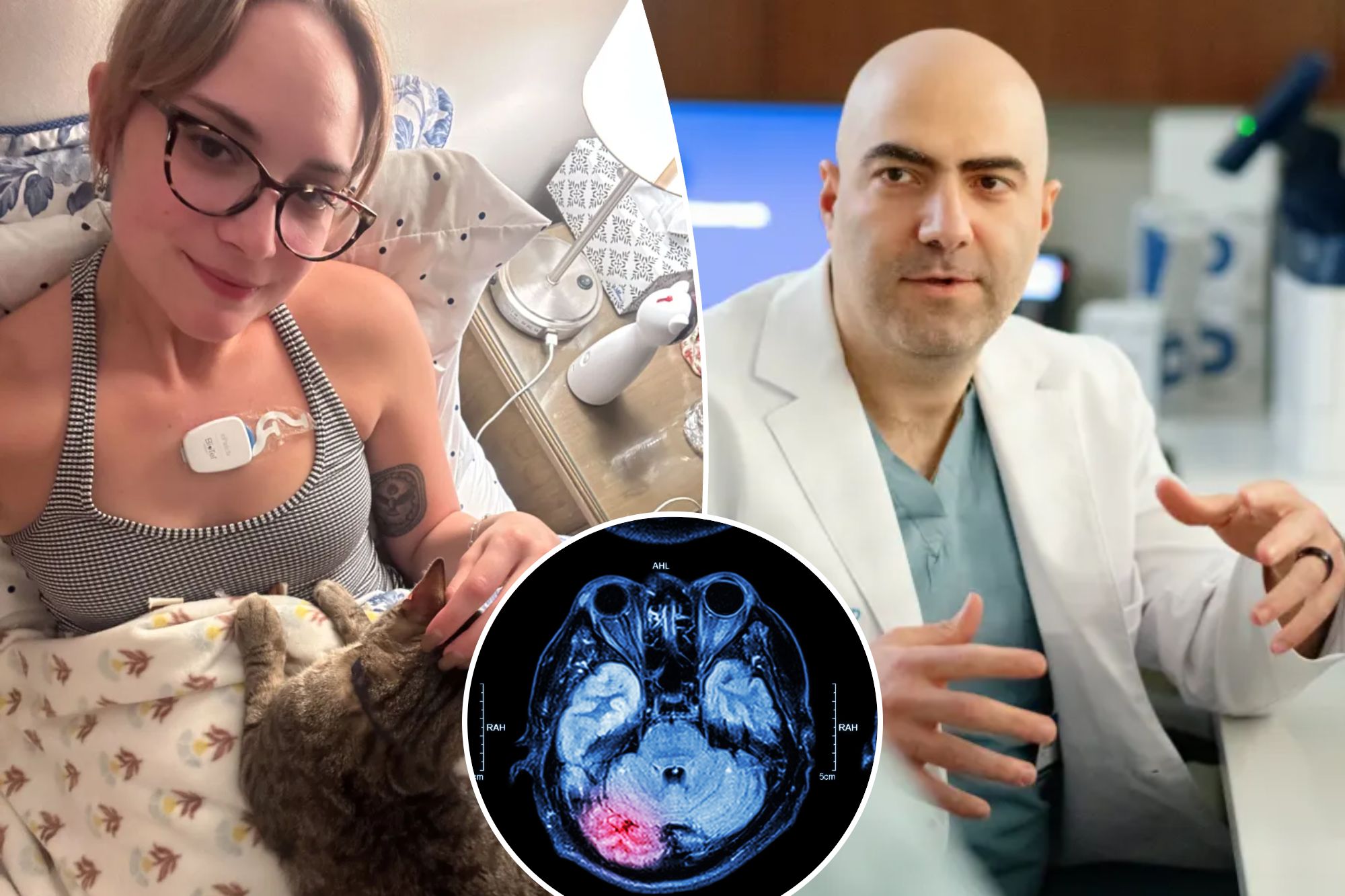The blows are increasing among the youngest, with a recent CDC report that reveals an increase of 14.6% among people from 18 to 44 years from 2020 to 2022.
While the alarming trend has been seizing medical professionals, an expert has shared some intriguing theories with the post.
“We have never had such young patients,” said Dr. Mohammad Anadani, head of neuroendovascular services at the Institute of Endeavour Health Neuroscience.
“We don’t think of a stroke in 20 -year -old patients. We feel more pressure when taking care of these patients because they are so young.”
Anadani recently treated one, but two extremely young adults who had a stroke: Ann Fulk, 24, and Aubrey Hasley, 23.
Its blows were a huge surprise for everyone, especially because they were both, for all common, healthy standards.
Anadani believes that the twice were embolism, which means that they originated elsewhere on the body and traveled to the brain instead of forming directly in the blood vessels of the brain.
“They both took oral contraceptives, which are known to increase the risk of stroke,” he said, emphasizing that Aubrey had an oval patent (PFO) pan, or a hole in the heart, which probably contributed to his stroke allowing a clot from erasing the lungs and traveling to the brain.
“With regard to the global increase in cerebrovascular accidents among younger adults, the exact reasons are not fully understood,” he said.
“However, it is likely to be related to an increase in traditional cerebrovascular risk factors such as hypertension, diabetes, high cholesterol and obesity.
“Lifestyle factors such as increased stress, long duration and physical inactivity have also been suggested as contributing factors.”
But there are other factors that could be at stake. Fulk said he worked hard at the time of his stroke and thus consumed a lot of caffeine.
The product you drank contains 200 mg of caffeine per can. Experts recommend no more than 400 mg of caffeine a day for healthy adults.
“Although there is no clear evidence that directly links energy drinks with stroke, several studies have reported an increase in the risk of hypertension and cardiac arrhythmias, such as auricular fibrillation, associated with its use,” said Anadani.
“These conditions are risk factors known to stroke, so it is plausible that energy drinks can contribute to high risk, especially in vulnerable people,” he said.
In fact, Scarsdale’s cardiologist and Tiktok star, Dr. Evan Levine, has previously told The Post that he considers energy drinks one of the four worst drinks for heart health.
Levine also points to the finger of the popularity of Adderall and the ease with which it can be obtained, especially with the increase in Telehealth companies.
“In April 2024, they find that when you are following them for eight years, young people from 20 to 40 years old, they are at a risk of 57% greater than young people who do not in these medicines,” said Levine in The Post.
Anadani believes that this theory is a solid thing perhaps.
“As for Adderall, evidence is mixed. Although most studies did not show a strong association between the use of Adderall and stroke, some studies did,” he said,
“Although energy drinks and adderall could play a role in increasing cerebrovascular accidents among young adults, they probably contribute to a lower degree than best -established risk factors such as obesity, physical inactivity and chronic stress.”
#people #stroke #accidents #age #twenty #young #patients
Image Source : nypost.com
